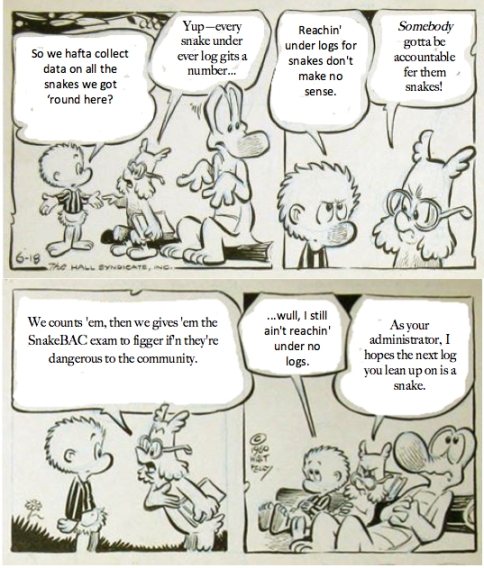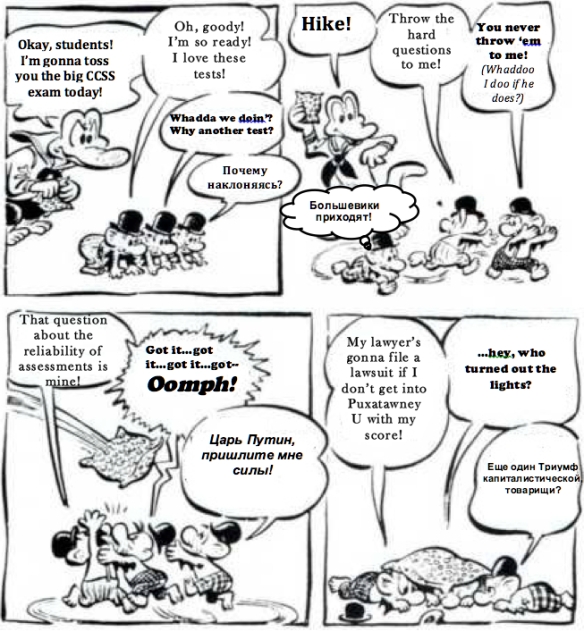Dear Calavera Catrina,
I remember meeting you for the first time in an art store on the Puerto Vallarta Malecón. You were there in the hundreds, small and large, garish and elegant–and always possessed of a haughty stare and a set of ivories that would do justice to a shark.
I’d met you before, of course, but never understood that in-person encounters with individual representatives of your archetype pale next to your cumulative effect on society.
You are easy to recognize, and you demand that recognition. Your clothes and demeanor always mark you as one who has access to wealth and power beyond the peons you expect to bend to your will. You’ve always been a dilettante, dabbling in public affairs with little expertise or experience to guide you. You’ve also been absolutely sincere, a true believer in the appropriateness of turning over public institutions to the private sector for exploitation. After all, it’s usually your friends and family members doing the exploiting.
Campbell Brown is but the latest acolyte in your stable, and I’d say she emulates your appearance, attitude and intellectual depth with precision. Someone might have warned Campbell that attacks on teacher rights to due process ought not to be paired with statements like “I do think there should be equality in money.” After all, it will cost a lot of public dollars to correct the effects of unequal funding of public schools, if that’s what she truly intends. I rather think that she’d prefer to withdraw public funds from wealthier districts than support poorer communities…it’s a “Catrina-like” solution to the situation she created with her off-the-cuff remark on the Colbert Report. I wonder if her husband and former investment banker, Dan Senor, would approve? After all, he managed to help us lose nine billion dollars of hard-earned U.S. taxpayer cash to fraud and theft in Iraq during his time working with the Coalition Provisional Authority.
Michelle Rhee exemplifies your attributes as well, Catrina. It’s apparent that she has worn out her welcome, but her crusading efforts to destroy unions, establish charter schools, and whip students into shape with standardized testing are based on absolute conviction of the righteousness of her cause. She will never view herself as anything but a warrior against forces of darkness…even though her denial of the reality that poverty is a fundamental cause for academic difficulty has been repeated time and time again. Catrina, you know that Michelle has attached herself to Sacramento Mayor (and former NBA player) Kevin Johnson; power and money attract your ilk like sugar water attracts hummingbirds. I expect Michelle will flutter in and out of educational politics for the foreseeable future.
But even Michelle can’t outdo Eva Moskowitz when it comes to out and out fabrications. Eva is the face of “Success Academy,” the ironic name for her chain of academically un-successful charter schools. Her “Catrinaisms” reach so far beyond the truth that fact-checkers can get whiplash just listening to her. The successes her academies have achieved have been almost entirely financial…she’s been able to secure funding for her schools from private hedge funds in addition to the public dollars she collects. Still, her students perform no better than those in poorer public schools.
But gender is no barrier to you, Catrina. Your attention to personal grooming and manifestations of power are also evidenced in the male personas you inhabit. Peter Brabeck, for instance, is a magnificent specimen. Only recently, Peter managed to turn thousands of years of social obligation on its ear by denying the right of humans to free access to water. Why, if we accept that the basis of life is open to exploitation by corporate enterprise, what argument can be made for any common good to remain in the public sphere? Education becomes another endeavor subject to the laws of supply and demand, for the only ethical principle a corporate leader is bound to follow is, “…to maintain and ensure the successful and profitable future of his enterprise.“
Individually, Catrina, your minions are easier to dismiss than the damage they collectively inflict on society. Catrina, you are not separable from death, for death is what you bring wherever you go. You have killed the hopes of generations of poor Mexican peasants, the dreams of poor black and white sharecroppers, the opportunities of the late middle class.
Catrina, your passion for the causes you promote is founded on a level of understanding as superficial as your smile. I remind myself that your smile is what most see last, just before your shark-like maw tears apart the tender fabric of societal protections necessary to meaningful democracy.
Will I live to see your demise, Catrina? Unlikely. You’re a slippery customer–attacking public education today, but shifting to other targets as the public becomes aware of your deceptive tactics.
No, Catrina, you’ll be with us in one shape or another…and your smiling countenance, thirst for power and impeccable taste will mark you for those with eyes to see.
© David Sudmeier, 2014











